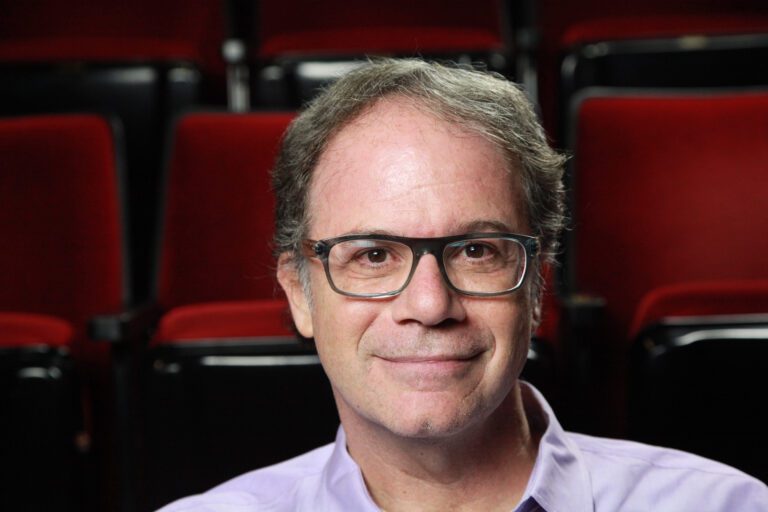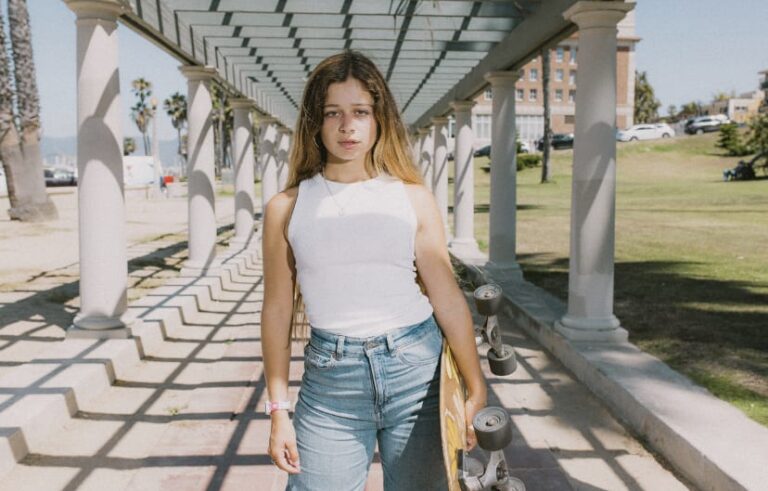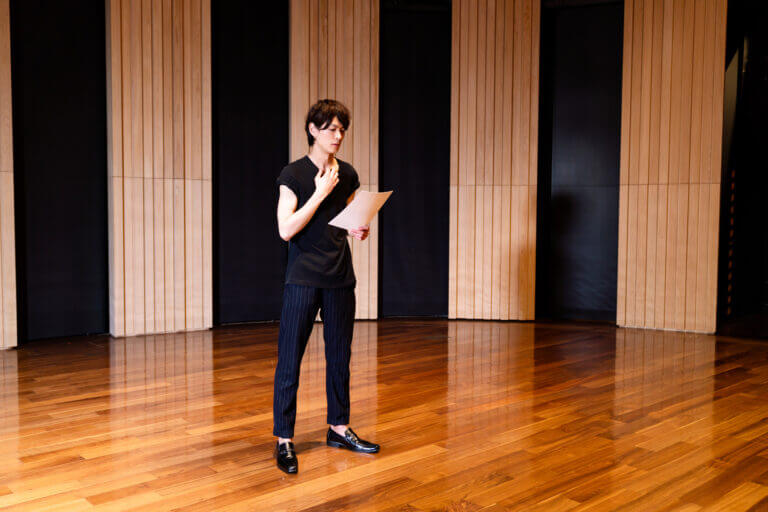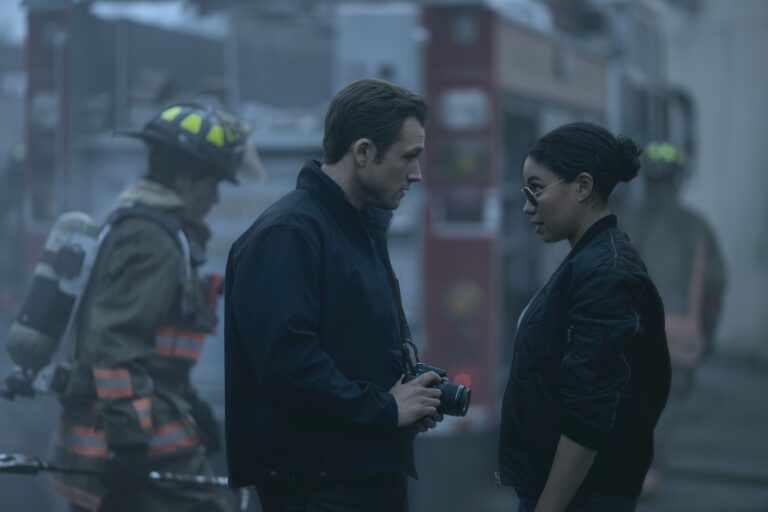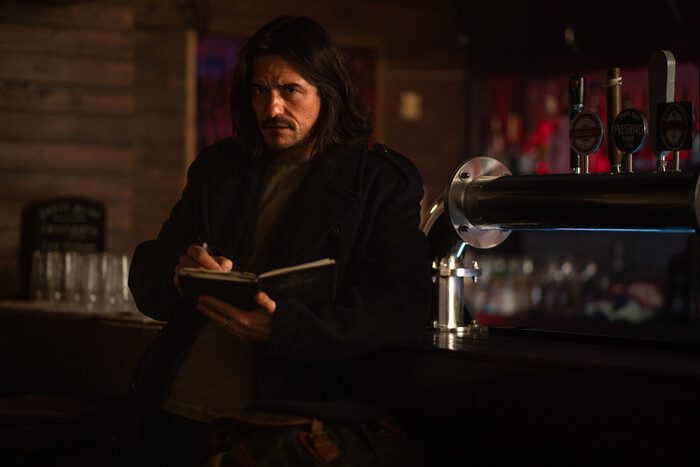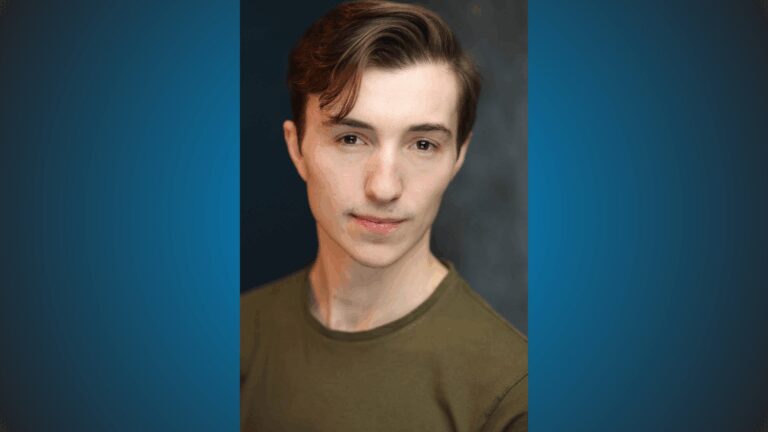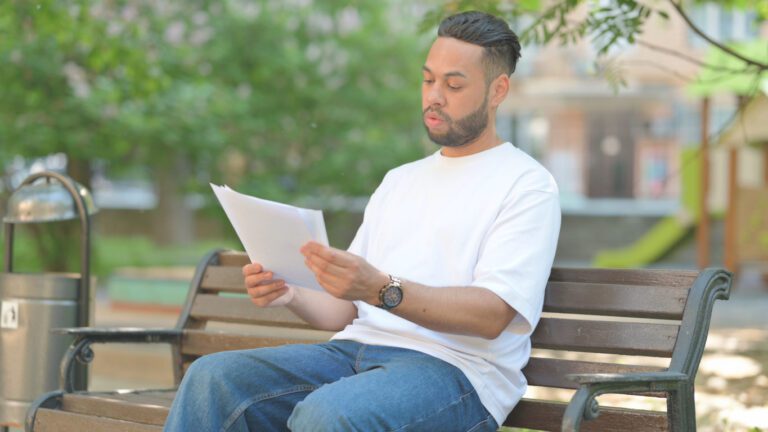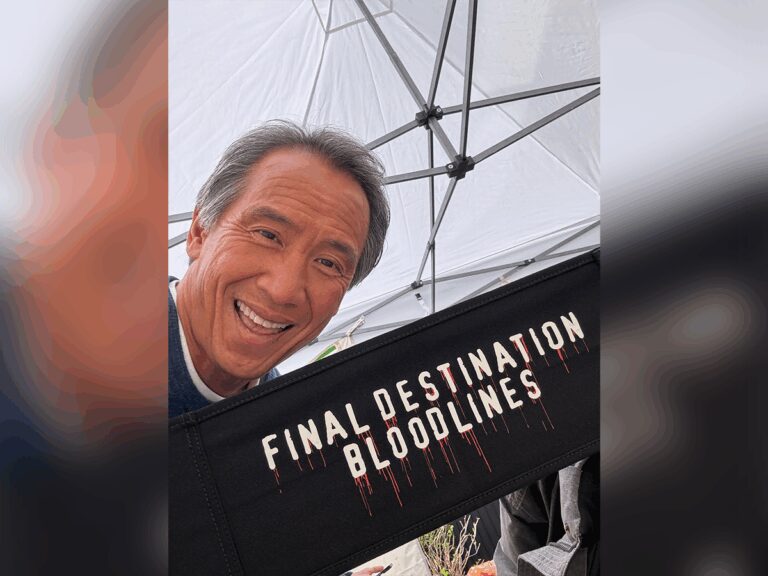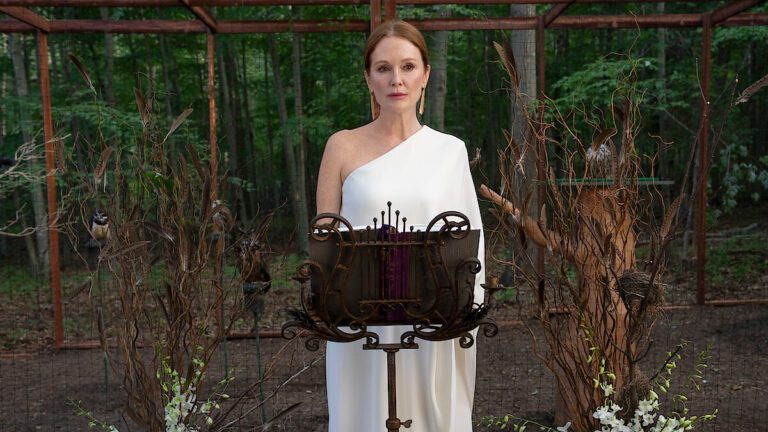Gillian Wallace Horvat has directed many a short film before making her feature directorial debut with I Blame Society. In it, she plays a warped version of herself – a struggling filmmaker in Los Angeles who begins to blur the lines between art and life when she realizes she’s good at getting away with murder.
Screen Zealots calls I Blame Society “a deliciously wicked, low-budget indie feature that blurs the line between documentary, reality, and getting away with murder.” Dread Central advises that “for any up-and-coming director, or serial murderer, Gillian Wallace Horvat’s do-it-yourself dark horror-comedy is probably required viewing.” Her work on the film was nominated for a Someone to Watch Award by the Independent Film Spirit Awards.
Horvat spoke to Casting Networks about making I Blame Society, her decision to star in it despite not considering herself an actress, and how she channels her own murderous impulses.
You’ve never starred in a feature film before. What made you get in front of the camera in addition to handling the behind-the-scenes as well?
I have never thought of myself as an actor. I never tried to audition for anything or get an agent. I was always happy to be in a friend’s film if they thought there was something I could do for it, but acting was not my path. The reason that I am acting in this film is to blur the lines as it plays on my biography. Also, the film stems from a short documentary that I started but didn’t finish, where I am being myself. To continue using that footage, we needed to keep me being me rather than hire somebody else to be me better. I’m glad that I played the part because it adds an extra dimension to the text. But it was also a very difficult task to do while directing the movie because it was all done in 12 and a half days.
You are pretty much in every scene of the film. Did you feel comfortable in front of the camera?
The fact that I’m not completely comfortable on camera added a realism to the film that would not have been there if it had been a trained actor with technique. Film technique for acting is the feigning of realism; it’s the simulation of naturalism. That wouldn’t have worked for something like this, which is ostensibly a found footage film, where people are constantly aware of the camera. When we know we’re being filmed, it changes how we act, and we become self-conscious. Because I knew that I would feel that way innately, that was something that I could lean into.
It also adds another layer to the performance because, in many scenes, the main character is the only one who knows everyone is being filmed. My character has a kind of duality to everything she says: it’s one way for the person she’s speaking to, but another way for a potential audience who might one day be looking at her found footage.
Your character is also a murderer. Is that something you feel you could be if you decided to go there?
If I had more murderous impulses, I think it would be super hard to keep them inside. I just don’t naturally have murderous impulses. I can feel angry. I can feel rage. But it doesn’t translate into a need to get violent. It translates into a need to eat candy and bitch about shit to my friends.
There are several scenes involving nudity for your character, and you did not use a body double. How did you feel when you shot those scenes?
I felt confident because I wrote it. If I had had any qualms about anything, I wouldn’t have put it in the script. I only wrote things that I knew I’d feel comfortable doing. Some things were technically more difficult than I expected. Like, stage combat is hard, and it’s not always easy to sell. It took a bunch of tries to have me hit (another actor) in the face with the laptop because I didn’t know how close you could get to selling it. I didn’t want to smack him in the face. That was harder than the nudity.
Also, as the director, being in the editing room, if I didn’t want something in the scene, I just left it out. If shots were too revealing or explicit, I could change them in the editing. A lot of actors don’t have any of that control whatsoever. They can’t pick the angle or the shot. They can’t say like I wish that one part of the frame was a little bit darker. I can do all of that. So I had complete control.
How did you go about casting all the other roles? Were they actors or real people playing versions of themselves?
For the most part, they were all real actors. I was lucky that I knew a fair amount of people from the shorts that I had done. My writing partner on the film, Chase Williamson, is great actor who knew a lot of actors too. Between him and I, we pulled in a lot of people. Our friend Kery Barker is an actor and casting director. She helped us fill in some blanks. Our producers helped us grab a few people too. But many were people that Chase and I knew and worked with before. The big criteria for being in the film was, ‘Are you willing to work for SAG ultra-low budget rate?’ And most people were. I don’t think anybody turned it down for money reasons.
What do you think of this whole acting thing as yet another hyphen to your busy career as writer-director-producer?
The acting thing was what I had the least experience with on this project. It’s the thing that I feel the least confident about when I watch the film. But what I do feel confident about is that I gave the kind of performance that I wanted. That’s because I made a lot of intellectual decisions about what kind of performance it needed to be. It’s hard enough writing and directing and being rejected in those professions. This movie is about how much you can take that. But it’s harder in the world of acting. Like, ‘I don’t like your look,’ ‘I want something else.’ That hurts. With writing, somebody’s like, ‘I don’t like your thoughts,’ ‘I don’t like what’s inside your head,’ ‘I don’t like your ideas.’ To experience both could lead to a wholesale rejection of self. I wouldn’t want to deal with that.
This year, you were nominated for a Someone To Watch Award by the Independent Film Spirit Awards. How does it feel, especially for your first full-length feature film?
It meant a lot. It’s validating. This film was so hard to get going even with its teeny tiny little budget. It had a lot of obstacles – probably because of the teeny tiny budget! But it’s amazing how it just got more and more momentum as time went on. Initially, nobody got it, and then it was just critics who were getting it. Then we sold to (streamer) Shudder, and the response to people who’ve been watching on there has been phenomenal. To get a nomination from the Spirit Awards was a dream come true. I can’t believe it all happened on my first film.
I Blame Society is currently streaming on Shudder.
Looking to get your big break? Sign up or login to Casting Networks and land your next acting role today!
Related articles:
Travis Fimmel of ‘Raised By Wolves’: “I’m the Worst Auditioner Ever”
Kodi Smit-McPhee Shares Memorable Auditions, Career Goals and a Peek at His New Sci-Fi Role
Jane Campion Talks Casting Award-Winning Film ‘The Power of the Dog’

